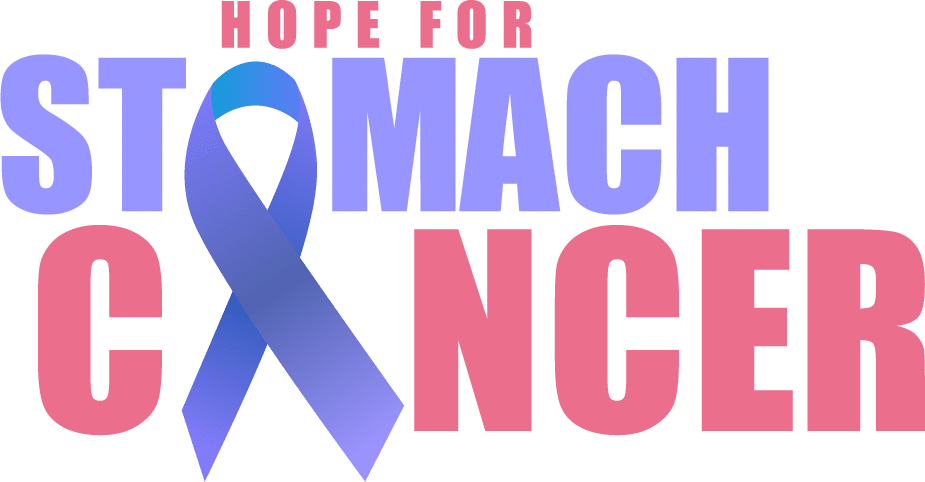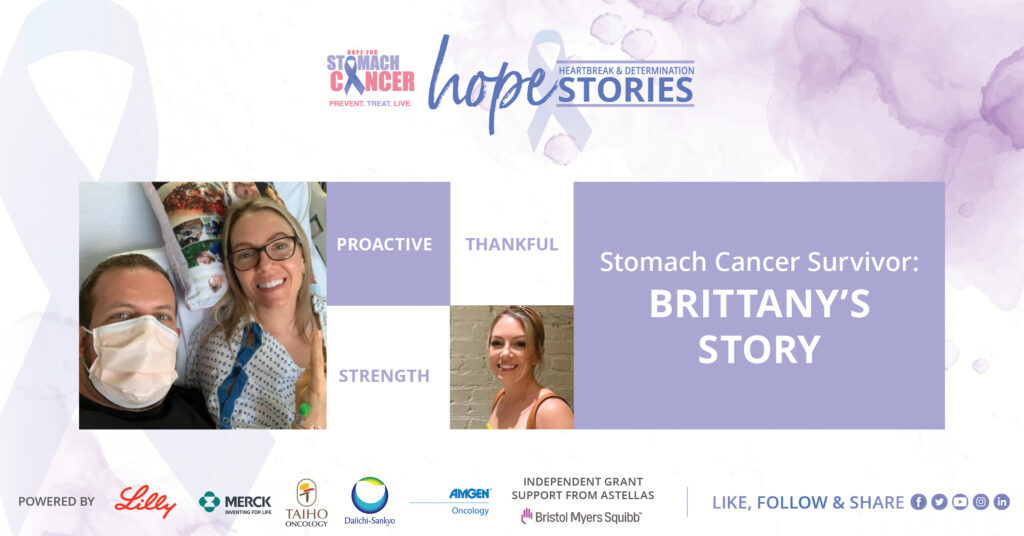Brittany Derfenderfer received her gastric cancer diagnosis at a young age. She diligently researched her options, got multiple opinions, and advocated for herself throughout her treatment. This is her story.
Brittany Derfenderfer: Gastric Cancer Fighter
I began having trouble eating in 2021. Naturally, I started to panic since I’d never experienced throat problems while eating before. Now, my esophagus would tighten up, and food couldn’t make it to my stomach.
Visiting with the GI Doctor
I saw a GI doctor shortly after my symptoms began. They did an upper endoscopy and didn’t seem too concerned during the appointment. After all, I was young, healthy, and didn’t have any history of significant stomach complications.
Therefore, we were both shocked the next day when she called me with my results – I had gastric cancer! This was terrifying news, and I struggled to wrap my head around what this meant for my future. In general, stomach cancer information is geared toward older men who smoke and have other risk factors. I quickly joined online groups after getting my diagnosis and realized that this disease did not discriminate by age, sex, or any other marker. In a group specifically for women, there were at least 200 other individuals in their 20s, 30s, and 40s who had the same diagnosis that I had.
 Getting Treatment
Getting Treatment
From the beginning, I was extremely proactive about my treatment. I Googled treatment centers and set up consultations with three different surgeons. Patients need to remember that not all centers are the same – each place has different philosophies and approaches regarding treatment.
The first two surgeons that I spoke with laid out the standard treatment plan, which involved four rounds of chemotherapy, a total gastrectomy, and then four more rounds of chemotherapy. I quickly found that most doctors are accustomed to working with patients who are in the late stages when their cancer is discovered. Sadly, this is the case for four out of five people who receive a gastric cancer diagnosis.
Fortunately, we discovered my cancer early. I chose Dr. Sam Yoon to perform my surgery as he seemed the most familiar with treating cancer in the early stages. He removed 60 percent of my stomach and performed a gastric bypass after. After the surgery, professionals evaluated me again, and we found that there was no cancer left.
Recovery
A partial gastrectomy is a major procedure, and recovery was a major challenge. I lost a lot of weight and cried frequently over my appearance. I tried to eat every two hours and even drank olive oil to get the calories I needed.
Although it’s been a challenge, I slowly have gotten accustomed to my new reality. I still deal with Dumping Syndrome 14 months later. This unpleasant condition causes nausea, a fast heartbeat, and extreme fatigue. I have to take anti-nausea medication every day to deal with the discomfort. I’m trying to eat as I used to without getting sick, but it will take more time to get there.
Life After Cancer
Apart from Dumping Syndrome, I’m thankful to say that I’m largely back to the way I felt before my gastric cancer diagnosis. I can lift weights in the gym, keep up with the things I need to do each day, and manage the challenges that I do have. It’s humbling to be where I am now, and I feel very fortunate for my outcome.
Advice for Other Gastric Cancer Patients
At this point, an endoscopy is the most reliable method for discovering stomach cancer. I had a signet ring adenocarcinoma, which is not easily detectable with a CT scan. As you’re getting diagnosed, it’s crucial to get multiple opinions and to work with a pathologist who understands your situation. Very experienced professionals should evaluate your biopsies since they understand biomarkers and can interpret scans.
Finally, make sure you go to a gastric surgical oncologist. You need a highly specialized person to treat you. Select someone who has done tons of gastrectomies; at least one or two per month. This is not a simple surgery, and complications could affect you for life.
Be involved in your treatment and surgery, and advocate for yourself as much as you can!

